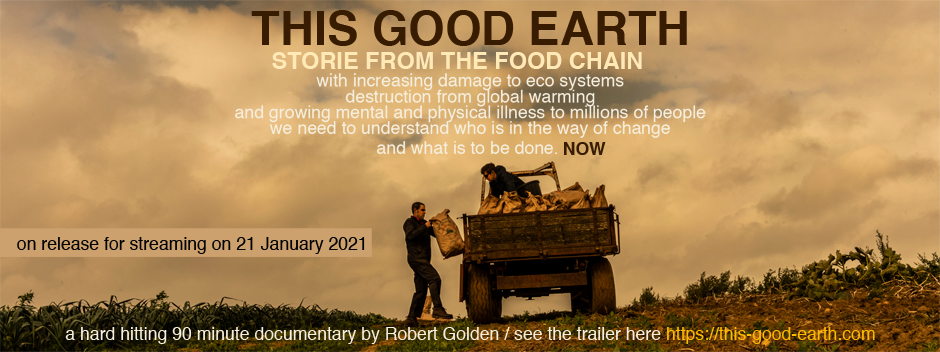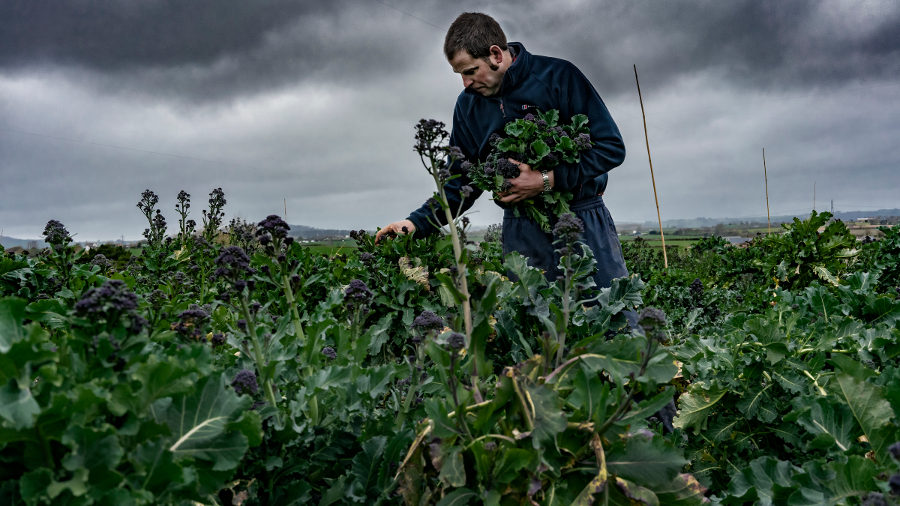This film is about the reality of global warming, impoverished diets and rising hunger, disease and deaths, and also about loving the land and other living things. Conversely, it is also about insisting that the only way to maintain one’s dignity and humanity is to resist, but also to turn away from the politicians and CEO’s impervious brutal order, to build a new and better people-based alternative whilst at the same time pointing the finger at those who would destroy our grandchildren’s lives.
There is of course a brief history to this film. In the 1960’s I was involved in the US Civil Rights Movement and in the Anti-Vietnam struggles.
In 1970, I moved to the UK, where I had been educated. Through the 1970’s I documented the beginning of the slow destruction of the English industrial working class and separately, the struggles of mostly West Indian immigrants against unfairness, hostility and open racism.
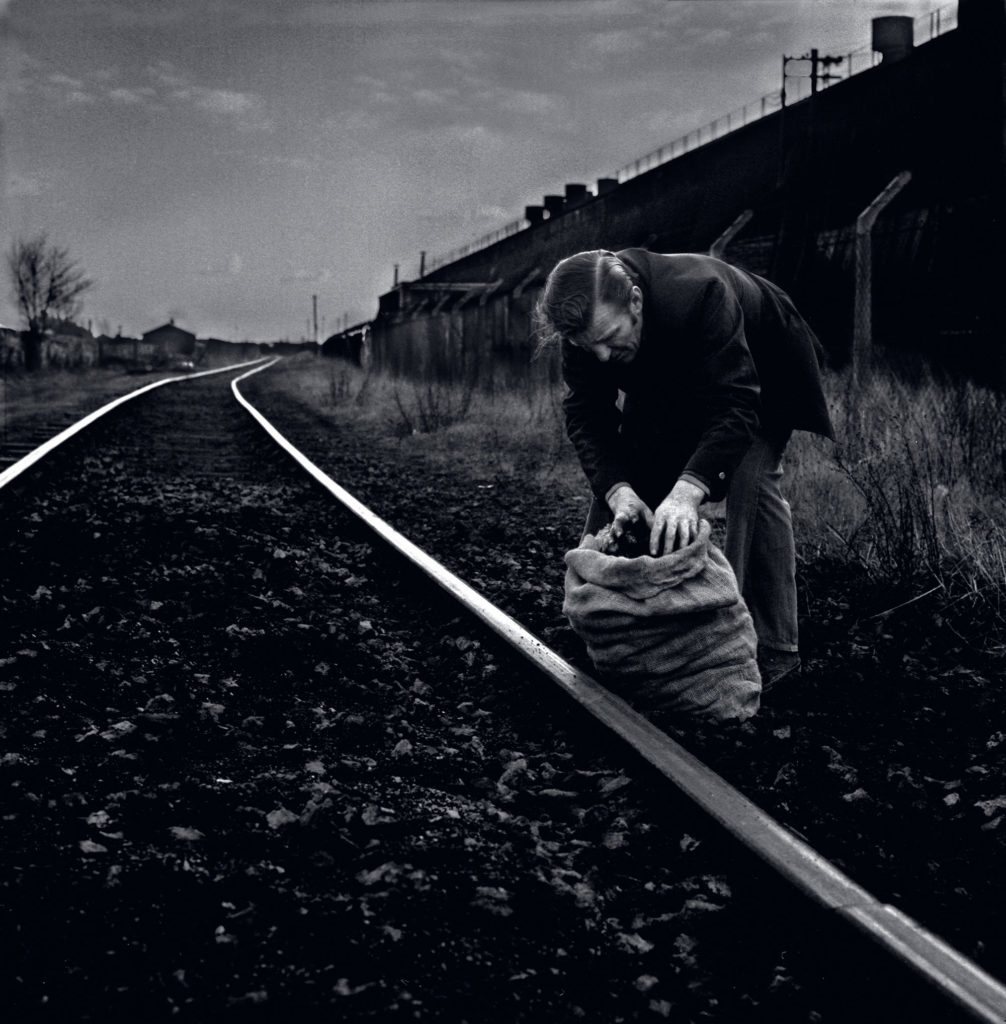
REDUNDANT COAL MINER ‘stealing’ coal from the rail tracks between the colliery and the coal burning power plant. Photograph Robert Golden
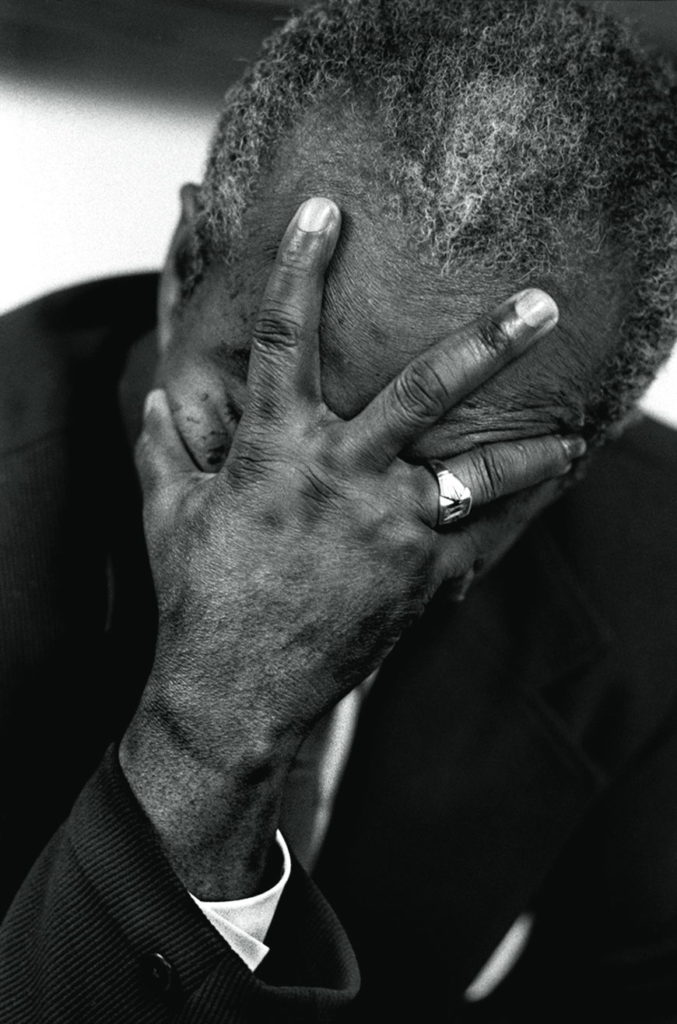
UNEMPLOYED BUILDING WORKER Photograph Robert Golden
In the late 90’s I asked myself why was it that the news was preoccupied with the horror human beings get up to, and almost never with the communal and wonderful things people are capable of. I decided to leave what I had been doing, to create a TV series called SAVOURING THE WORLD.
Being a photographer/film-maker who appreciates the power and beauty of close-ups, as we travelled from country to country, I began to realise what I was seeing in the eyes of the cooks, bakers, farmers and fisher people was not dissimilar to what I had seen in the eyes of the English workers and their families when their world slipped away from them.
We, my producer wife and I, travelled to 13 countries from England to Japan and from Sweden to Brazil filming people’s agricultural and fishing traditions, their sacred places, celebrations, music and their cookery. It was an extraordinary voyage of discovery, often heart warming. We encountered poverty, joy, ignorance, but also the generosity of the poor but something else, disturbing and almost indefinable.
This first series sold to over thirty markets but its real success was what it had opened our minds and hearts to, and how that forced me to question what the indefinable was about. I began to encounter the word ‘globalism’ and ‘globalization’ and then ‘neoliberalism’, the ‘Washington Consensus’, ‘food dumping’, ‘modern slavery’, ‘financialisation’, ‘climate change’, ‘manufacturing consent’, ‘oligarchy’ and yet more disturbing words and concepts.
With these in mind, I made a second series, called SAVOURING EUROPE. It too was a celebration of people’s food and farming, of their love of family and their own culture and traditions, but each film had within it a story that emerged from the place itself: the rise of obesity, the destruction of local traditional artisanal food culture, the damaging incursion of fast food joints and supermarkets, the introduction of ultra-processed foods, etc. When we inquired with the sales agents why our second series sold only into 14 markets, they said the purchasing editors found their (food) sponsors would not advertise during the showing of our films.
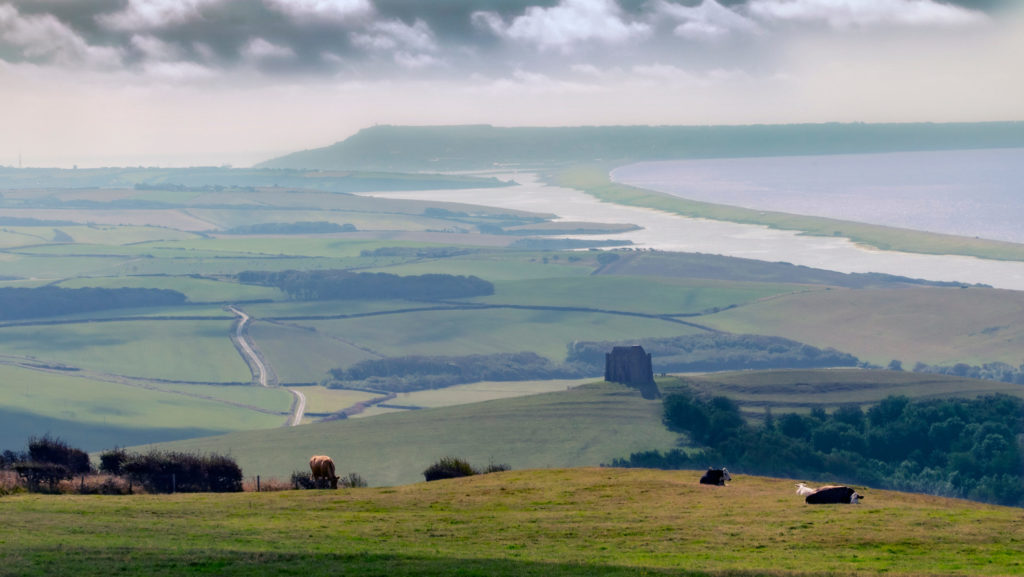
CHESIL BEACH – in the food rich county of Dorset where SAVOURING DORSET was filmed, as well as becoming the epicentre of THIS GOOD EARTH, Photograph Robert Golden
Thereafter I more seriously researched the international food system and discovered that everyday over 97 thousand children under the age of five were dying from starvation and other food linked illnesses. Every year hundreds of thousands of infants were dying from the heavy-handed selling of dried milk formula to illiterate mothers in developing countries. Then I saw that the exponential rise in diabetes, certain forms of cancers and heart disease were directly following the incursion of Western foods into southern hemisphere diets.
My previous films of good spirit seemed naïve. When I discovered that 3 huge commodities/food transnational corporations were feeding obesity to the industrial world and starvation and other diseases to the developing world, I believed I had no choice but to tell that story.
I imagined a documentary called TOXIC HARVEST, which, because of its scope, needed outside investment to make it. After 4 years of meeting arrogance, superciliousness and an almost total lack of care from financiers, editors, broadcasters, distributors, we were hit by the 2008 bank collapse; my dream of making that film dissolved away.
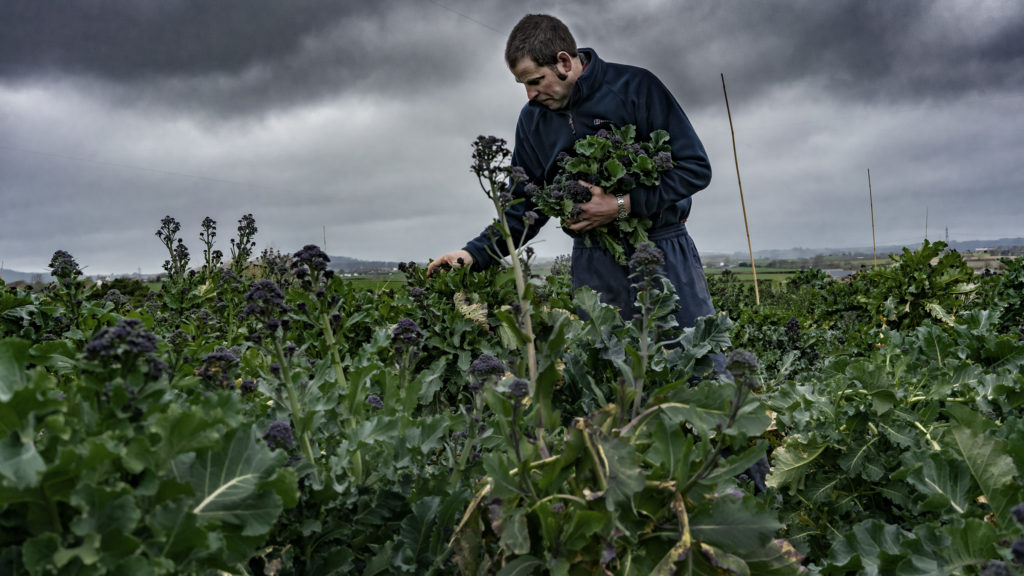
Simon Holland, Washingpool Farm PICKING SPROUTING BROCCOLI, photograph Robert Golden
In 2017, people near where I live, who had been in the English episode of SAVOURING EUROPE, convinced me to update the film. When they revealed to me how much the film had helped them recognise the power and good of their artisanal food, their organic produce and their climate aware farming, I felt a responsibility. By then, global warming, hunger amidst plenty, food-banks, austerity and the avoidance of politicians and corporate leaders to change these heartless conditions had become apparent. The film needed to be longer and to help people come to recognise what we are all submitting to by staring at our feet.
THIS GOOD EARTH will be previewed in Bridport, Dorset, UK on January 21st and available for streaming from the film’s website: https://this-good-earth.com where you can read more about the film and see the trailer.
Presently the film has the support of the UK SOIL ASSOCIATION, THE WEST DORSET AREA OF OUTSTANDING NATURAL BEAUTY, several smaller organizations as well as people in DORSET WILDLIFE TRUST, DORSET PUBLIC HEALTH and numerous professors, scientists and food producers.
